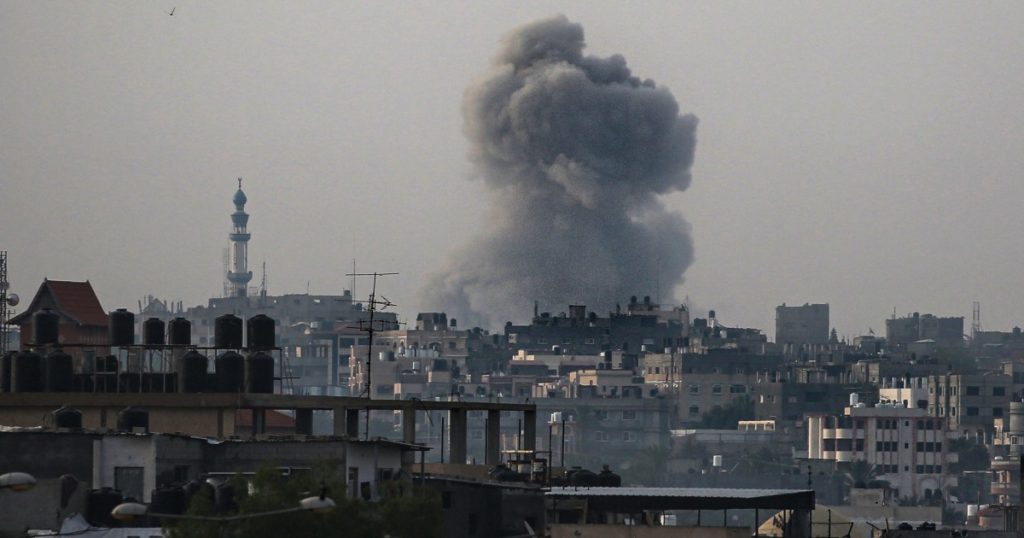Pressure is mounting on Israeli Prime Minister Benjamin Netanyahu to change course in the ongoing war on Hamas, with key members of his war cabinet threatening to quit due to concerns over tactics and future planning for Gaza. Former defense minister Benny Gantz and current defense minister Yoav Gallant have publicly challenged Netanyahu, calling for a new plan and discussing the direction of the war. Gantz has given Netanyahu three weeks to adopt a new plan or face the threat of his party leaving the government, citing a need for a clear strategy to prevent an attritional war that could last for years.
The Israeli Defense Forces have been fighting Hamas in Gaza, with recent incidents such as a friendly fire incident that killed 5 Israeli soldiers in Jabalia camp raising doubts over the strategy in the war. Hundreds of homes have been destroyed, and many bodies have been recovered, with an unknown number of people still trapped. Gantz has laid out a six-point plan that includes the return of hostages, replacing Hamas’ rule with an international administration, and normalization of relations with Saudi Arabia. Netanyahu has rejected Gantz’s claims, saying they would mean defeat for Israel, and emphasizing his opposition to the establishment of a Palestinian state that could become a state of terror.
The public criticism from Gantz and Gallant has deepened rifts within Netanyahu’s government, potentially forcing him to rely more on far-right politicians who advocate for Israeli rule over Gaza and the establishment of Jewish settlements there. This criticism from within the government, as well as increasing international pressure from the U.S., has put Netanyahu in a difficult position. Despite opposition to any invasion of Rafah, Netanyahu has insisted on continuing operations in the city, issuing evacuation orders for residents.
More than 800,000 people have fled parts of Gaza’s southernmost city, with another 100,000 displaced in northern Gaza. The lack of safe water supplies and sanitation facilities in these areas has raised concerns about providing emergency humanitarian assistance. The operation in Rafah, which has been limited to certain areas so far, is seen as a way for Netanyahu to buy more time. The criticism of Netanyahu’s handling of the war highlights concerns that he may be putting personal interests ahead of the wellbeing of the people of Israel and Gaza. Ultimately, the pressure on Netanyahu to adopt a new plan and change course in the war on Hamas continues to grow.


